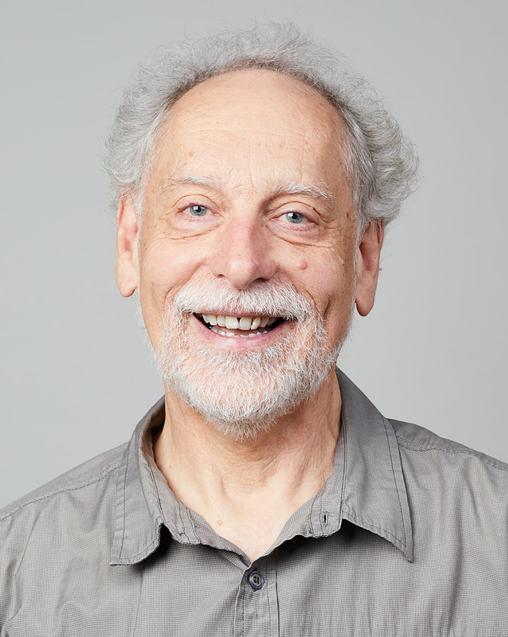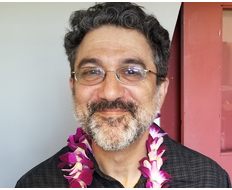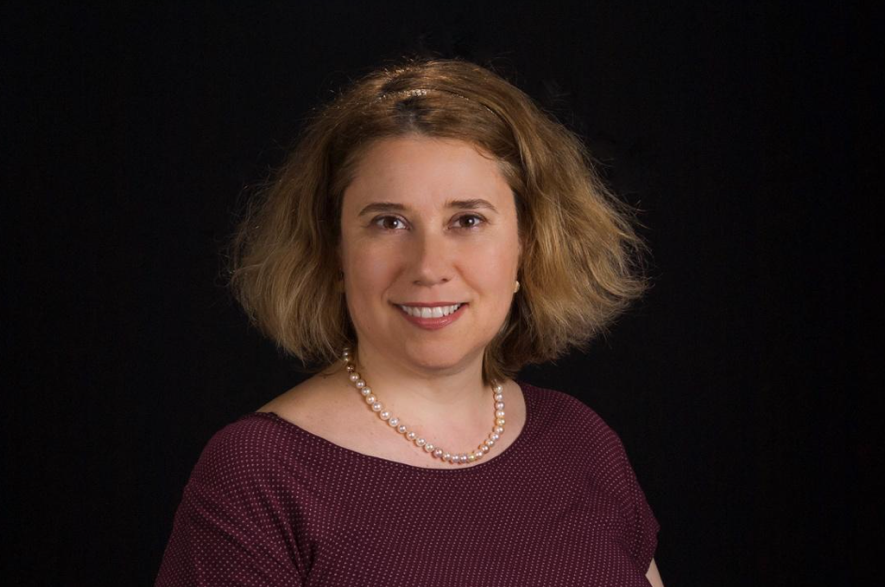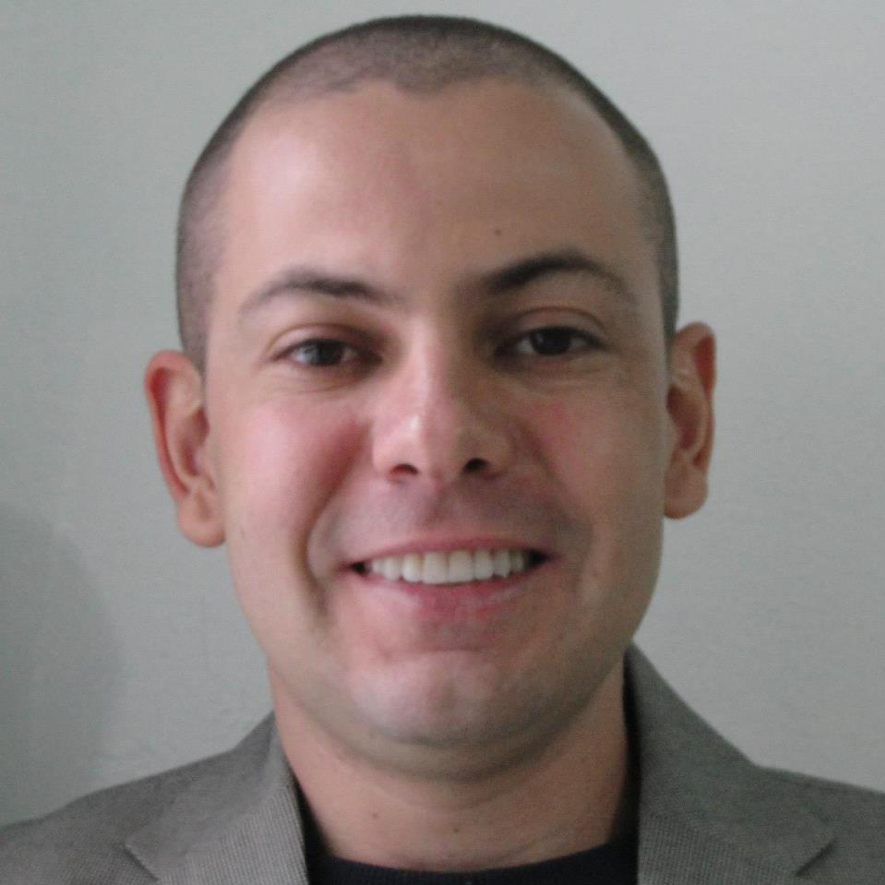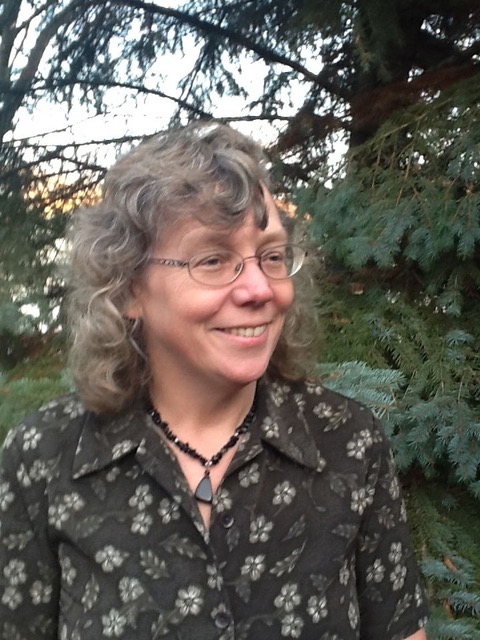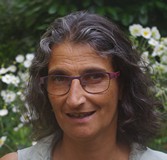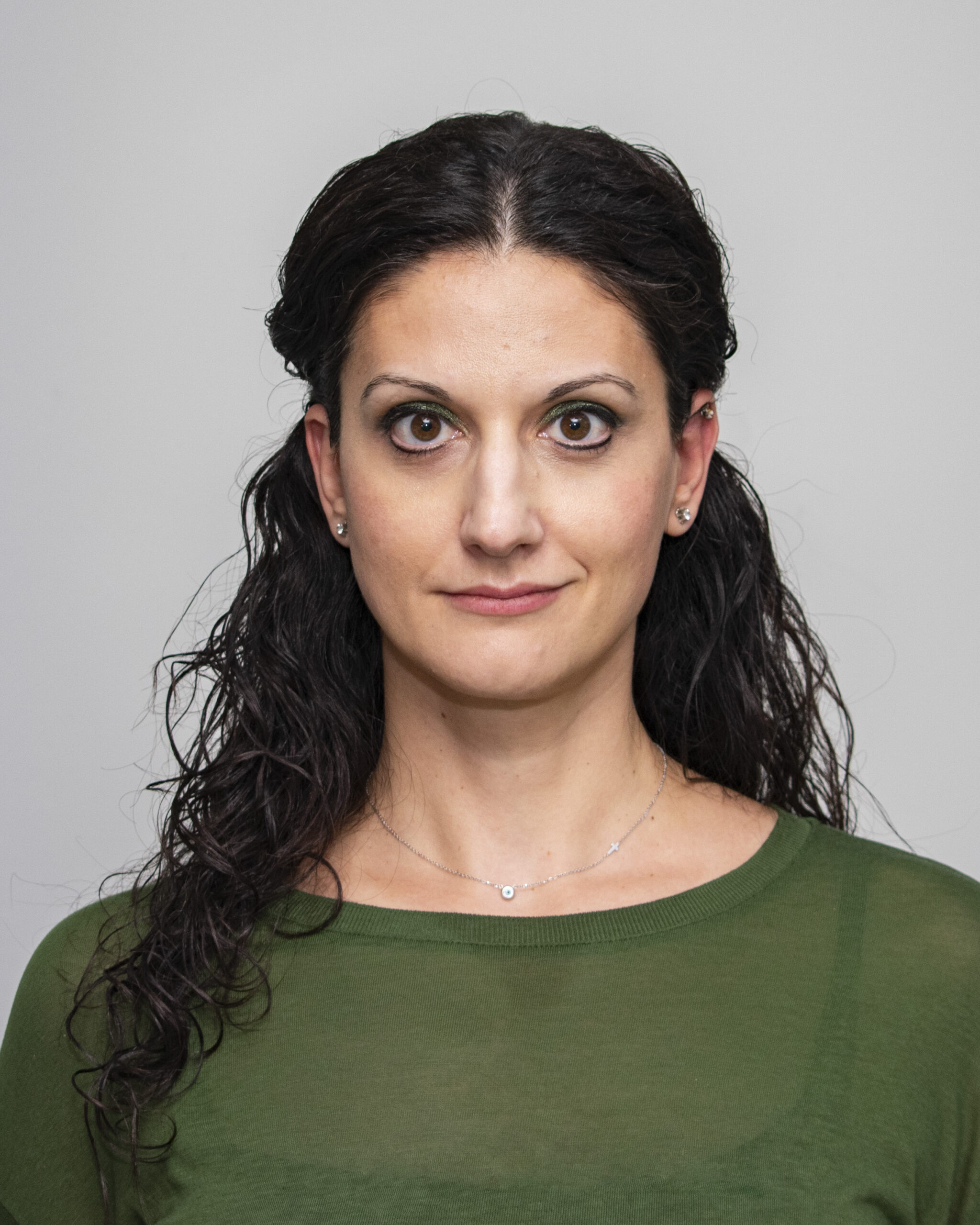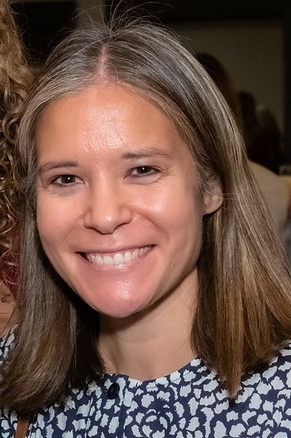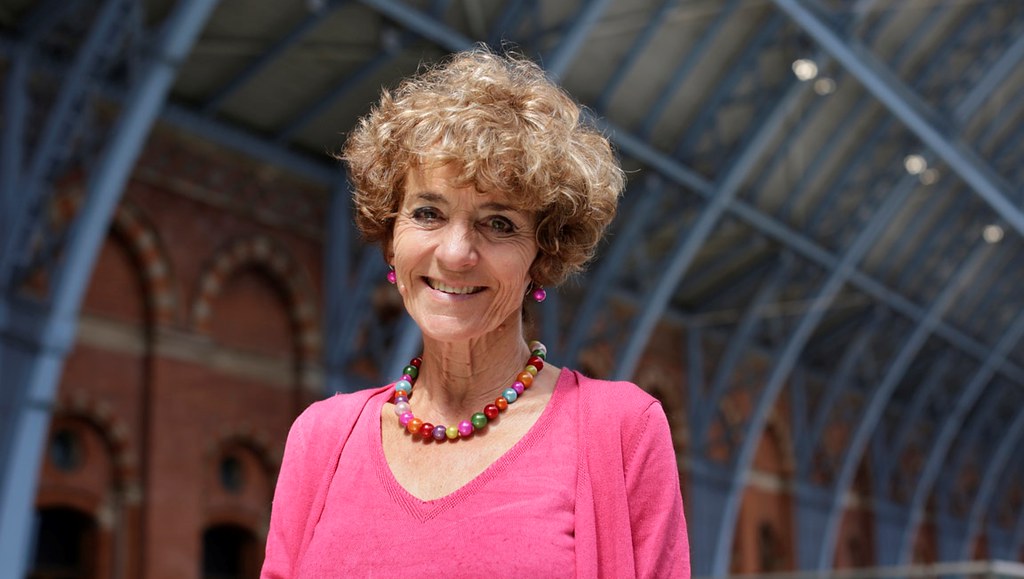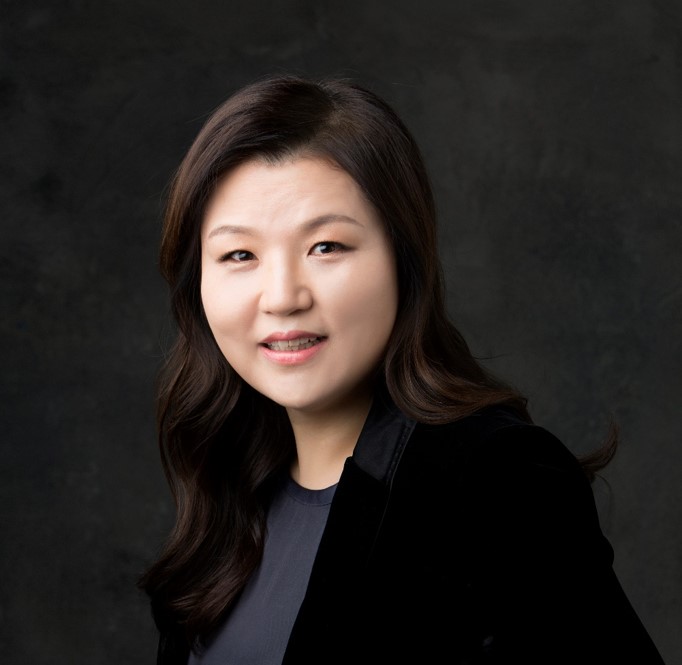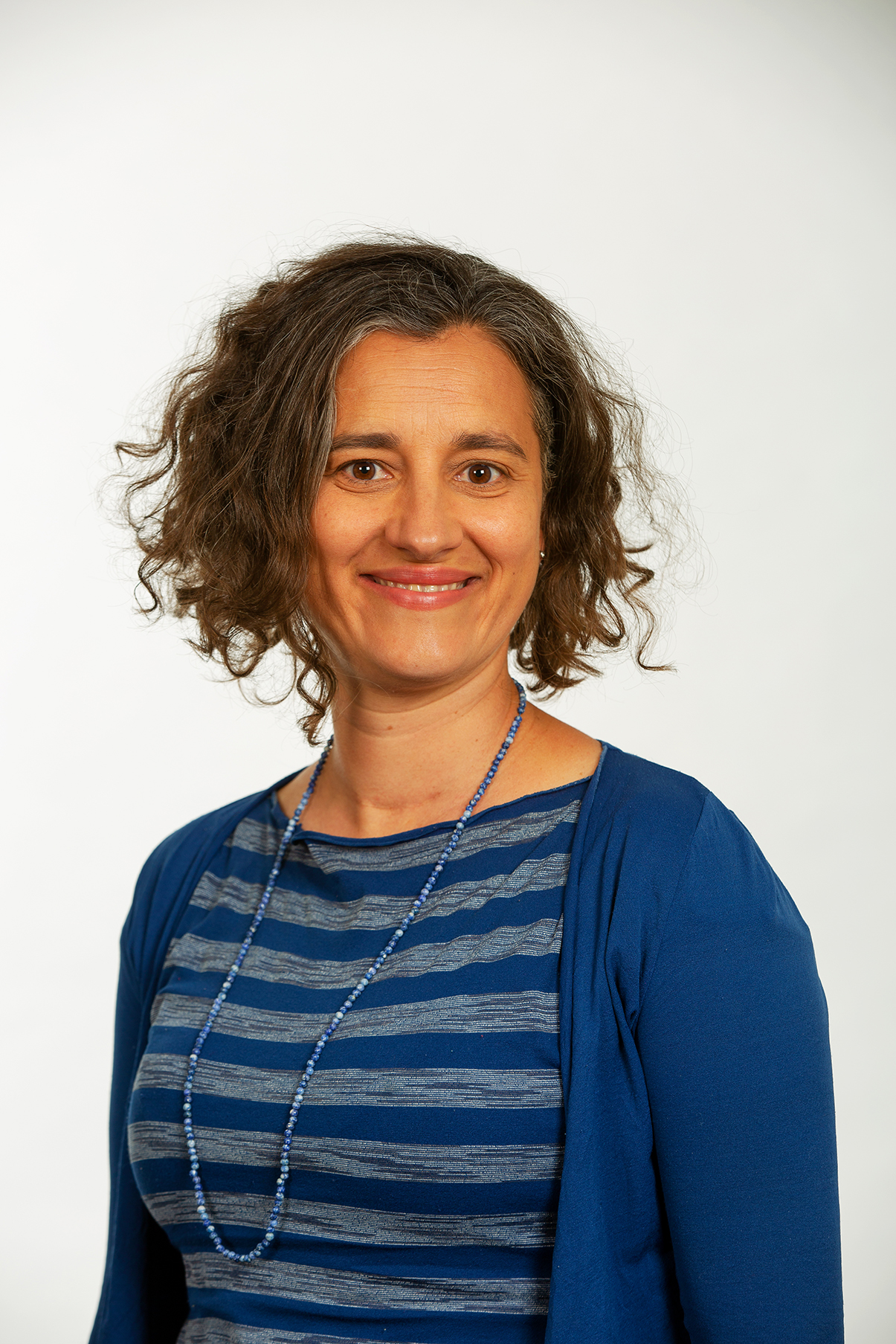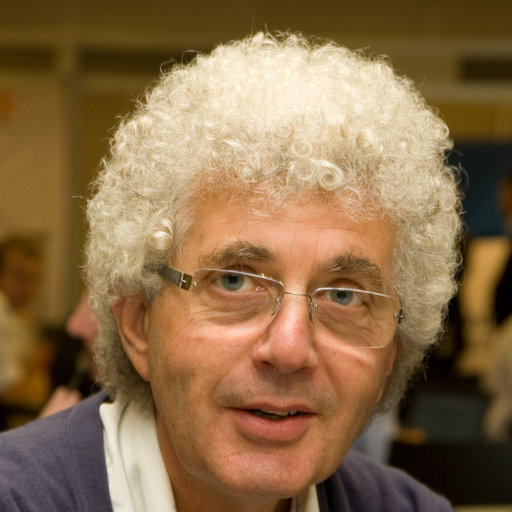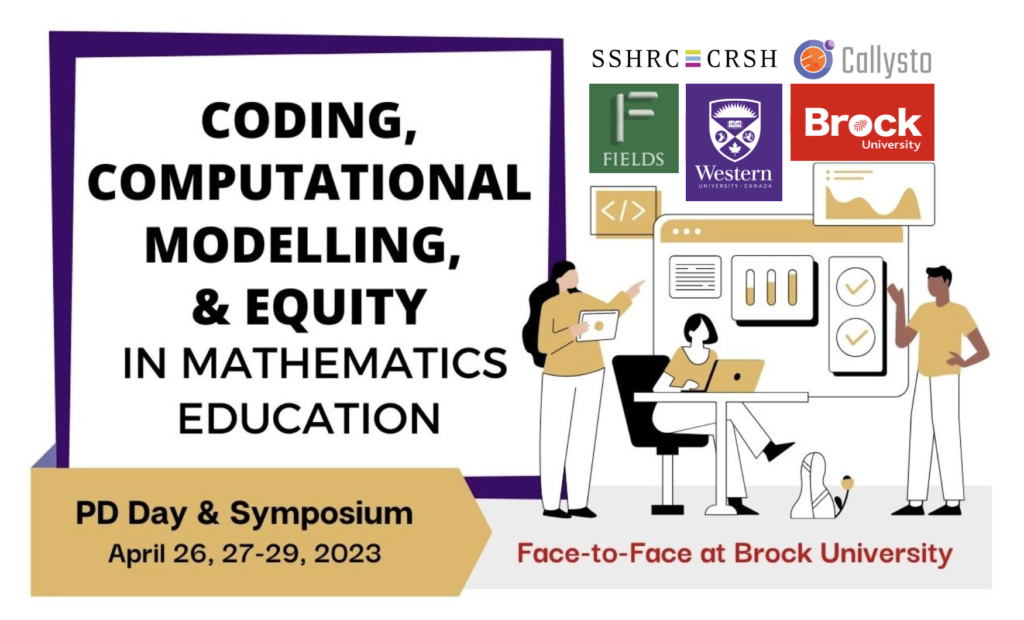
Online proceedings will be available at the end of 2023. They will also include the recording of the keynote presentations and discussion panels.
Keynotes
Title: Five Powerful Ideas about Technology and Education
Abstract:
I will present “five powerful ideas” concerning the very best ways to enhance education via computers. These ideas have stood the test of time in that they have guided decades of my own work, and they have been reinforced and adjusted as we have had experience with them. Some of them even originated directly in surprising experiences we had working with students and teachers.
These ideas are subtle, deep, and unfamiliar to many. A “once in several centuries innovation,” information technology, impinges on profound epistemological and cultural issues. None of them is “easy to implement,” and there are also cultural dissonances with popular ways of understanding how to use computers in education. Each idea stands on its own. But they also relate synergistically to the umbrella idea of “computational literacies,” which I will also motivate and introduce.*
My talk will seek to bring these ideas to life in examples and will include commentary on avenues of progress and also on blocks and limitations impeding quicker progress.
*For further information about computational literacies, or as a preparation for the talk, the organizers of this conference recommend a previous, recorded talk by Prof. diSessa: https://www.youtube.com/watch?v=3pnc_ry5Y1c
A written exposition is diSessa, A. A. (2018). Computational literacy and “The Big Picture” concerning computers in mathematics education. Mathematical Thinking and Learning, 20(1), 3-31.
Title: Coded Bias: Decoding Racism in AI Technologies
Abstract:
With advancements in technology, tools built on artificial intelligence (AI) technology have made their way into the justice system. AI tools are now being used in recidivism risk assessment to predict the likelihood of reoffending by individuals in the criminal justice system. Also, AI facial recognition technology is being used in identifying subjects and suspects in the criminal justice system. While these tools might have been designed with the best intent, their use in the justice system has raised serious concerns about their potential to perpetuate racism and racial bias. This is especially the case where the tools are designed using historical data from era of biased policing, biased bail and sentencing regimes characterised by systemic discrimination against particular sections of the society. Algorithmic racism has been coined to describe this problem. This presentation will discuss racial biases encoded in various AI technologies used in the justice system and their potentially adverse impacts on Blacks and other racial minorities.
*This speaker will present virtually.
Working Groups
The symposium will employ a working group model like the Canadian Mathematics Education Study Group (CMESG). Working groups have leaders who plan discussions and activities to frame the work of their group. Symposium participants are invited to choose one working group to attend, in which they work closely with their group members for an extended period of time over the entire duration of the symposium (2 hours on Day 1, two 90-minute sessions on Day 2, and 2 hours on Day 3). Showing up and sharing your ideas is key to the success of this model. After the symposium, working group leaders and participants produce a report synthesizing their work and its outcomes, which serves as a pertinent contribution to the field.
Working Group A: Coding and computational modeling in elementary and early years mathematics education (EEYME)
Abstract:
Coding and computational modeling are increasingly becoming curricular requirements across all age-ranges (Floyd, 2022). This working group will explore this phenomenon by focusing on elementary and early years education with an emphasis on mathematics while acknowledging and respecting the interdisciplinary nature of the work of teachers during this dynamic and diverse period of child development. The working group’s focus may include,
- discussion of affordances and limitations of different metaphorical frames and descriptions for coding used in EEYME such as ‘literacy’ (diSessa, 2017), recipe, puzzle, playground (Bers, 2020), creative expression, and architecture (low floor, high ceilings, wide walls).
- developing and evaluating instructional materials and approaches for teaching coding and computational thinking in elementary and early years math classrooms (earlymath.ca)
- examining the impact of coding and computational thinking on students’ math skills and attitudes
- exploring the use of technology and software tools to support coding and computational thinking in EEYME.
- investigating the ways in which coding and computational thinking can be used to enhance problem-solving and critical thinking skills in EEYME.
- sharing research findings, learning trajectories, and emerging best practices for teaching coding and computational thinking in EEYME.
- critical discussion about under-articulated or less explicit goals such as computational participation (Kafai & Burke, 2017), productive computational disposition (Pérez, 2018) as well as opportunities for considerations of ethics, equity, and the development of empathy (Bers, 2022).
The WG is dedicated to examining how and why opportunities to code across the early years through elementary provokes mathematics learning with a combination of hands-on activities and critical discussions. Participants will have the opportunity to try out some unplugged and plugged tasks that have been tested in the mathematics classroom and explore the affordances of the Micro:bit (microbit.org) as a potentially equitable tangible coding platform.
Working Group B: Coding and computational modeling in secondary and university mathematics education
Abstract:
Mathematics is used when coding and designing algorithms (Modeste, 2016), and coding is often used to expand the class of mathematical problems that can be solved or the set of concepts that can be explored (Buteau et al, 2020; Lovric, 2018). Mathematics and coding can also be used jointly with principles from other disciplines to model real-world situations (Giabbanelli & Mago, 2016; Caron, 2019).
In this working group, we examine coding and computational modeling in secondary and university mathematics by working with and developing hands-on activities for students and educators.
We explore ready-made programs related to secondary and university mathematical concepts, along with tasks that have been or could be built from these programs, and then consider the characteristics of effective program-task combinations.
Important concepts, practices and ideas associated with computational thinking, computational modeling, mathematics, or computer science will be identified in the effective activities. As we develop our ideas in discussing activities and teaching, we will connect them to (or contrast them with) existing research and associated frameworks (Weintrop et al., 2016; Grover & Pea, 2017; diSessa, 2018; Modeste, 2018; Bråting & Kilhamn, 2021; Dohn, 2020). Key elements could be made part of a foundation to create new activities, and envision improved integration of mathematics, coding, and computational modeling instruction.
We invite participants to bring, if they wish, their own samples of coding or programming tasks.
Working Group C: Equity, diversity, and inclusivity in coding and computational modeling in mathematics education
Abstract:
Coding and computational thinking (CT) is being integrated into K-12 mathematics education around the world. Researchers have identified numerous potential benefits for integrating CT with mathematics including “make[s] abstract mathematical concepts concrete” (Wilensky, 1995, p.257), dynamic modelling to develop mathematical concepts and relationships (Gadanidis, 2015), support transfer of learning from the classroom to real-world settings (Lunce, 2006). Other researchers suggested: motivation to experiment; the development of mathematical intuitions; critical reflection; and working with abstraction and different representations (Howson & Kahane, 1986; King et al., 2001; Marshall & Buteau, 2014).
However, this rapid integration of CT & mathematics raises many potential equity issues, including equitable access to technology for coding, equitable access to quality instruction and instruction that makes coding attractive to a diverse range of students.
Equity, diversity, and inclusivity
This workshop addresses the issue of quality equitable pedagogy as the benefits of coding for mathematics learning are based on instruction that promotes problem-solving, computational thinking and connections to mathematical thinking for ALL students. Incorporating this equitable pedagogy is difficulty for most teachers who have 1) little to no prior experience learning coding as problem-solving, 2) little access to quality teaching materials (Wu et al., 2020; Yadav et al., 2016) nor 3) no vision of integrating & connecting between CT / CM and mathematics teaching (Gleasman & Kim, 2018).
This workshop explores equity issues around quality pedagogy for coding and mathematics, developing strategies and vision to make coding more inclusive. Participants will then examine existing coding and mathematics activities through an equity lens before modifying the activities to develop mathematical reasoning for all students. In this way the workshop hopes to develop equitable math and coding activities, and develop a vision for future adaptations. In creating more equitable coding and mathematics activities, and a framework for modifying other activities, this workshop hopes to harness “the power to change pedagogies and students’ experience of mathematics learning” (Ford, 2018, p. 27).
Panels
Research Panel*: How do computational thinking and mathematical thinking interact (in terms of knowledge, ways of thinking, and competencies)?
Abstract:
Over the past decade, there has been an upsurge of interest in the research on computational thinking. Many countries are in the process of introducing computational thinking into their school curricula, either as a new dedicated subject, a cross-curricular theme, or integrated within an existing subject, such as computing or mathematics. The relationship between computational thinking and mathematical thinking has been of particular interest and there is variation in how computational thinking is perceived by different stakeholders in the mathematics education discipline, including researchers, teacher practitioners, and teacher educators. In this interactive research panel, we will discuss characterizations of computational thinking and how it relates to mathematical thinking in terms of knowledge, ways of thinking,and competency. We will consider a historical overview, relevant literature, and state-of-the-art research, hoping to bring forward arguments for the importance and value of computational thinking in mathematics education in the 21st century. In doing so, we seek to highlight relevant questions and issues related to computational thinking that are relevant for the mathematics education research community. We will invite the audience to engage in active participation and will discuss with the audience their views and perceptions regarding all the issues raised.
Acknowledgments. Initial preparation of this panel was coordinated under the lead of Dr. Nathalie Sinclair (SFU, Canada), Canada Research Chair in Tangible Mathematics Learning. Some of her ideas might be reflected in the panel structure as well as in the panelists’ contributions.
*These panelists will present virtually.
Practice Panel*: Mathematics Education incorporating Coding: Practical Challenges and Opportunities
In-person and livestreamed in collaboration with the Fields MathEd Forum April 2023 meeting.
Abstract:
Coding or programming is ubiquitous across the world. But what coding means, how it is learned and developed and how it is exploited as a tool to explore topics in different subject areas varies enormously across jurisdictions: for example, coding can be introduced and developed as part of a school computing curriculum, as part of the school mathematics curriculum or more informally within out-of-school clubs. These different structural organisations inevitably serve to define what happens in practice in schools, shapes how students develop coding skills and learn key coding concepts, informs how teaching might be enhanced through coding, and ultimately how coding might be exploited outside of computing as a tool to think with and explore mathematics.
This panel will touch on some of these issues with a particular focus on the interactions between mathematics and coding in practice. The discussion will aim to tease out the challenges, risks, and opportunities of integrating coding into mathematics classrooms while addressing questions such as: Why should coding be incorporated in mathematics classrooms? What is the specificity of coding in mathematics and the links between coding and mathematics? What can coding bring to mathematics in terms of new content or new ways to support mathematics teaching and improve learning? Which mathematical topics are most aligned to the incorporation of coding and why? What are the links between coding and algorithmics, applied mathematics, and reasoning?
The panel will comprise a chair and four invited panelists from four different countries with different curricular structures. It will conclude by a reaction, titled ‘Past, Present, and Future: 1980s – 2020s – 2050s’.
*These panelists will present virtually.
Poster Session: Research and Innovative Practices
The organizers of the Symposium invite submissions of poster presentation proposals contributing insights into Coding, Computational Modelling, and Equity in Mathematics Education. Poster proposals may focus on research or innovative practices. In the research category posters may present completed or preliminary research and must include a clear statement of the context, goals, research questions, and findings of research. In the practice category posters may highlight innovative practices or projects and must include a description of the project or innovation including the goals, activity/tasks, teaching/learning experiences and outcomes if applicable. The posters will be displayed and presented at the Symposium poster session that will take place on Day 2 from 1pm to 3pm (in two one-hour sub-sessions). Materials (poster boards, tables, etc.) to assist in setting up posters and displays will be available.
Those interested in presenting a poster must submit a poster proposal indicating the poster category and including a) title, and (b) 500 word abstract (references are not included in the word count).
Call for Poster Abstract Submission is Closed!
For any questions, please contact:
- Dr. Joyce Mgombelo (jmgombelo[at]brocku.ca)
- Dr. Marisol Santacruz-Rodiguez (marisol.santacruz[at]correounivalle.edu.co)
Poster Session Presentations
Here are the accepted posters.
Innovative Practice Focus
Integrating experimentation into a mathematics curriculum
Amenda Chow
York University
STEM courses often have a laboratory component, except this is not common in mathematics. Experimentation is an important part of student learning as it is an opportunity for teamwork, design, creativity, exploration and discussion; that is, experiments encourage student engagement and retention [1]. At York University, in the Department of Mathematics and Statistics, we have an experimental math space [2], which is meant to inspire exploration and experimentation in the teaching and learning of mathematics. Such a space is a physical laboratory which houses equipment for students to conduct experiments related to the mathematical concepts they are learning. Such pieces include zome tools, Lego mindstorm robots, spherobolts, spiragraph sets, portable microscopes, water tanks, pendulum, string vibrator, slinkies, etc. Many of these pieces and corresponding experiments require mathematical software to operate. Examples of software are MATLAB, Desmos, Labview, and Phyphox [3]. Some experimental examples from the Experimental Math Space are: – using Zome tools to build three-dimensional structures to learn geometry concepts, – analyzing the data of a pendulum experiment to better understand sinusoidal functions, velocity, position, and differential equations, – conducting vibration experiments to support mathematical and physical models, – exploring rotational motion and moment of inertia by racing objects of varying size and mass down an inclined ramp. Other examples can be found in Banks and Tran, 2009 [4] or Mamolo, Sinclair and Whiteley, 2011 [5]. The actual experiments maybe conducted by students in the experimental math space, or taken outside of the space and into classrooms. Instructors can use the equipment to explore concepts they want to incorporate into their lesson plans. It can also be used by students who are completing course projects that benefit from an experimental component. Outside of the classroom, York’s experimental math space hosts community engagement activities such as math camps for high school students and STEM workshops for girls, or recruitment events during campus tours and department open houses. York’s experimental math space has been developed with the following in mind: flexibility, scalability, sustainability and inclusivity. All pieces of equipment can be reused, and most are portable and hence readily mobile. Experiments are designed and equipment purchased such that they can be used in multiple ways. There is also no cost to students or instructors who want to use the experimental math space, as this space is operated by a university wide teaching and learning fund. Learning outcomes for incorporating experimentation into the teaching of mathematics include: – connecting mathematical concepts with practical applications, – working in a team environment, – designing scientific procedures, – using software for experimental purposes, – observing experimental results and writing scientific reports. Some of the pieces and equipment from York’s experimental math space will be on hand during the poster session. We will have some demonstrations and hope this generates engaging conversations. All are welcome to try out any of the pieces on hand, and questions/feedback are strongly encouraged!
Promoting learning and interest in mathematics for urban Black and Latinx children through culturally relevant daily robot coding activities
Irina Lyublinskaya*Ⓟ, Laura Hart**
*Columbia University
**Vision Education and Media
ⓅPresenting author
The goal of this National Science Foundation – funded 4-year project is to increase the interest and improve achievement in mathematics of New York City Black and Latinx students in 1st – 3rd grades. Research shows that students of color experience stagnation and downward achievement in mathematics already by the 3rd grade, making it difficult for them to imagine a career in the STEM field (Rellensmann & Schukajlow, 2017). Active learning strategies have been shown effective in engaging historically underserved students in improving their math achievement (Arthur et al., 2017). Studies also show that students from different cultural backgrounds process information differently and that applying culturally responsive strategies to instruction can be beneficial for students if the content is consistent with their cultural experience (Ascher, 2018). This project focuses on developing an innovative mathematics curriculum using robotics technology as a platform. After extensive research of early childhood robotics technology, we selected BirdBrain Technologies’ Finch Robot 2.0, a small wireless robot built to promote gender equality and diversity in computer science and robotics (Heiner, 2018; Lee & Walker, 2014). Our premise is that the robot’s features will provide students with opportunities to use coding to support active learning of various topics in elementary school math. The project is in its first year that focuses on designing coding activities that build upon strengths of urban Black and Latinx students that are often overlooked in traditional classrooms. This approach stands in contrast to deficit ideologies that inform ineffective pedagogical approaches to math learning for students in underserved communities. Using a sociocultural context, the activities will help students see connections between their everyday life and math. In year one, our interdisciplinary team engaged teachers in PD workshops that focused on collaborative explorations of a sociocultural context for teaching math through iterative cycles of joint development and revision of the activities to address diversity, access, equity and inclusion in their classroom environments. Thus, the teachers were learning coding during PD workshops as they engaged in co-designing culturally relevant math activities. Research shows that engaging teachers in the development of technology-based materials while supporting their learning of technology leads to teacher empowerment necessary for successful implementation of innovation into the teaching process (Lyublinskaya & Tournaki, 2012). The project also created an online collaborative space for interaction of teachers with each other and the project team. Our preliminary findings indicate that teachers have positive attitudes about using robot coding technology in mathematics. There is a diversity of skills and knowledge among the teachers, which requires more individualized support. Some teachers are unsure about robot capabilities to address standards-based curriculum. Many teachers struggle to identify culturally-relevant contexts for the topics in the mathematics curriculum. While teachers are actively engaged in co-design of activities during workshops, we are challenged by sustaining teacher engagement in the project between PD workshops. Very few teachers utilize the online collaboration space to access resources and communicate with each other and the project team.
Raveling mathematical and computational discernments in solving the finger problem: Reflections from a teacher educator
Steven Khan
Brock University
The finger counting problem is a thinking task that I use to ravel together several discernments about mathematics, teaching mathematics, and coding/computational thinking. This raveling together is necessary in the time-limited methods course offering as coding is not the only aspect that has to be taught but also how to code and many other areas of mathematics and teaching mathematics. In this poster I present the ravel of critical discernments that are woven into this problem and the way I have approached facilitating it over several years. In particular I discuss the computational and pedagogical discernments offered to elementary teachers in studying three of my coded solutions to the problem in Scratch. I discuss teacher candidate reactions to the original problem and to the coded solution and suggest the need for additional time devoted to coding to develop necessary expertise that would assist pre-serevice elementary teachers in extending their understanding of coding as a tool for teaching mathematics to better facilitating coding as a tool for learners to solve meaningful mathematical problems. The poster highlights the complexity of this work.
Research Focus
STEM4S (STEM for Sustainability) in outdoor and land-based educational spaces
Alexandria Middlemiss
Western University
Interdisciplinary science, technology, engineering and mathematics education, or ‘STEM’ education, has gained traction in recent years, with a high demand for skilled workers who can fill STEM-related positions that meet the needs of modern communities (Government of Canada, 2021). Global socioecological challenges related to sustainability are multi-faceted problems, requiring a multidisciplary approach; STEM education affords students opportunities to engage with and address such complex challenges. This PhD research project proposes that outdoor STEM education is paramount in developing both desire and skill in youth to effectively address the climate and conservation concerns so vital to the survival of humankind. Chan and Nagotomo (2022) have coined the term STEM4S (STEM for Sustainability) as a multidisciplinary approach that expands the scope of STEM education to meet global sustainability challenges. In the research I will conduct for my PhD dissertation, I will work alongside educators in the outdoors to research the intersection of environmental education and STEM education, tracing the connections between sustainability and inquiry-based interdisciplinary STEM learning within outdoor learning spaces. Students working on high-order thinking, collaborative and interdisciplinary STEM tasks – including unplugged computational prticipation and coding tasks – that focus on sustainability, while simultaneously learning, creating, collaborating and innovating in outdoor environments, brings this type of learning to life in a way made uniquely possible by shifting the learning environemnt to outdoor and natural spaces. Could students participating in these types of multidisciplinary challenges lead to deep ecological knowledge building and innovation that leads to sustainable development and sustainable lifestyles that are so desperately needed for our society today? Within the context of Reggio Emilia approaches to education, the physical environment is conceptualized as a third teacher, facilitating learning in it’s own right (Robson & Mastrangelo, 2018). The concept of Environment as a Third Teacher also frames this study as a practical embodiment of social constructivism. Decolonizing land-based pedagogies, rooted in Indigenous epistemology and ontology, consider the land as vital and interconnected with every part of learning; learning within this epistemology takes place wholistically in connection with real life including land based sustaining practices (Bowra et al., 2020). Moving beyond a place-based pedagogy, land-based learning “acknowledges and appreciates the land as its own fundamental, sentient being that has spiritual, emotional, intellectual and physical aspects” (Bowra et al., 2020). Learning within this paradigm approaches the learning space wholistically in the context of a reciprocal relationship with the land (Bowra et al., 2020). The methodology for this research will be qualitative, consisting of a mosaic approach (Mereweather, 2015) across multiple sites running outdoor STEM educational programming in Ontario. The mosaic approach is a multi-method approach where students and adults collaborate, using child-led data collection (i.e. photos, conversations, tours of the learning space) along with observations, rich descriptive data and semi-structured interviews to understand childrens’ and adults’ perspectives. I will collect assessment data for authentic assessments which may include video, photographs, anecdotal notes, rubrics, checklists, records of feedback or other teacher assessment tools.
Computational modeling with Micro:bit in teacher education
Ami Mamolo*Ⓟ, Sheree Rodney*, Diane Tepylo*
*Ontario Tech University
ⓅPresenting author
This study explores the shifts in attention (Mason, 1998) of prospective teachers (PSTs) that emerged from their engagement with a computational modelling (CM) task in which PSTs collected and modelled climate-related data using the micro-controller–the BBC micro:bit© which is programmed using MakeCode©. Teaching mathematics through CM provides opportunities to develop rich understandings and experience new pedagogies (e.g., Gadanidis, 2015; Yadav et al., 2014). The micro:bit© offers an authentic tool that can promote creativity and develop computational thinking and problem-solving in learners (Videnovik et al; 2018). Gleasman and Kim (2020) highlight the need for teachers to have a robust set of instructional experiences that can promote the use of CM to support mathematics learning. In this paper, we consider the research question: What insight into PST’s awarenesses for teaching CM can be revealed through their shifts in attention when exploring and modelling climate-related data with micro:bit©? This research took place with PSTs (n=36) who were enrolled in a coding education course. Data were collected over a two-week period where PSTs explored how to use the micro:bit © to collect and analyze data related to soil moisture, light pollution, and temperature change. Our data collection items captured three phases of participants’ attention – before, during, and after their exploration. PSTs used temperature sensors to collect real-time data from various sources of their choosing and to program the micro:bit © to read and depict the data and to issue a warning if the temperature fell outside a set range. Participants’ code was collected, as well as written responses to prompts that invited them to raise questions, unpack their exploration, and envision future possibilities. The goal of our study was to analyse instances of shifts in attention experienced by PSTs with respect to awarenesses for teaching CM. Results indicate that attention traverses complex pathways. During their engagement with this activity, participants navigated an interdisciplinary space that drew attention from the physical hardware and how to set it up, to using sensors for collecting data, to coding a conditional program to analyze and report the data, and to thinking about implementing similar activities in their future practice. Through our analyses, we traced three different pathways of attention, each of which was shaped by different awarenesses. The first pathway focused on physical uses of technology, wherein the physicality of the micro:bit© (e.g., size, weight) drew attention to how other similarly sized technology could be used, and diverted attention away from CM and climate. The second pathway focused on personal experiences and connection with the technology. In this pathway, attention was internally focused, on personal interests, and internal to the device and its built-in functionality. In the third pathway the focus was pedagogical, including the scientific practices that could be enhanced with micro:bit© and the value of exploration and experimentation. We suggest that examining PST’s pathways of attention can help provide valuable insight into the professional development experiences needed to support the use of CM when teaching mathematics.
Computer programming in the professional development of future mathematics teachers
Ana Isabel Sacristán*Ⓟ, Marisol Santacruz-R**, Joyce Mgombelo***, Chantal Buteau***, Eric Muller***
*Cinvestav
**Univ. del Valle
***Brock University
ⓅPresenting author
We present part of a 5-year ongoing research (see Mgombelo et al, in press) where we examine how university students use computer programming as a computational thinking instrument for mathematics inquiry, using a mixed methodology and an iterative design approach. We focus here on some students who are pre-service mathematics teachers and present an analysis on how they use computer programming both for their own learning and for educational resources they create for others. The research takes place at Brock University, where mathematics students as well as future mathematics teachers have the option to take a sequence of three one-semester courses called Mathematics Integrated with Computers and Applications (MICA). In the progression of these courses, students engage in 14 mathematics investigation projects where they program computational exploratory objects (EOs). For three of those projects, pre-service teachers have the option to create learning objects (LOs) to teach a mathematics concept. In our larger research, we have been using the instrumental approach to analyse how MICA participants develop programming from an artefact into an instrument (Gueudet & Trouche, 2009) that they can integrate into their practice as mathematicians and teachers; and have analysed their instrumented schemes. Using as framework the documentational approach (Gueudet & Trouche, 2009), we focus here on how future teachers use programming for their learning and in teaching resources they develop. Data collected include each participant’s EOs and LOs, their associated reports, their final projects which are teaching lessons, and semi structured interviews with them. In Mgombelo et al. (in press), we inferred some instrumental schemes that future teachers develop during the development process of an LO. Here, we identify elements of the documentational genesis of future teachers, in how they appropriate programming as a resource, first when they create EO’s and LO’s, and later in their design work for the final teaching lessons. Work funded by SSHRC (#435-2017-0367) with ethics clearance (REB #17-088).
Computational thinking and the Algebra Project: Developing voice, agency, and identity
Brian R. Lawler
Kennesaw State University
Our project aims to learn to the opportunities and challenges to integrate computational thinking in the urban middle grades (6–8) mathematics classroom. We build on the curricular and pedagogical principles of The Algebra Project to design discourse-rich learning environments that engage imagination, creativity, and reasoning. Lessons begin with a concrete event. Because all students have access to thoughts and opinions about this concrete event, all students have a place and a voice in the learning. In discussing, drawing, and writing about the event, students develop an expression of their agency. What students say (internally and externally as voice), and what students do (individually and collectively as agency), in the long run, contribute to the building of their mathematical identities. The realization on the part of students that they can do the required mathematics through their own voice and agency is how they recognize their right to make a demand on the educational system for a quality education, what Bob Moses called their earned insurgency.
Our project uses computational thinking and programing within a microworld that we think of as an epistemic playground. The Algebra Project pedagogy leads students form this concrete event to abstract conceptualization. When students are successful at producing appropriate intellectual structures, it allows them to generalize a concept and apply it across different scenarios. What this means is that the student is able to take what they have internalized, and then externalize it in multiple ways that are relevant, giving the student the ability to explore how what they have learned can produce various types of impacts. In our project, we extend the Algebra Project’s framework to complete an experiential learning cycle, one that engages algorithmic thinking by using a constrained microworld (“playpen”) followed by inviting students to engage in convivial explorations inside what we call an epistemic playground. Students apply their newly gained “abstract” knowledge and return themselves to a concrete place of knowing, seeding the potential to begin a new learning cycle.
Our poster will demonstrate this extension of the Algebra Project 5-Step curricular process to a complete experiential learning cycle, and provide samples of student engagement from our project.
Implications of translanguaging for teaching computational thinking in culturally/linguistically divers mathematics classroom
Ghusoon Alqassab*Ⓟ, Immaculate Kizito Namukasa*
*Western University
ⓅPresenting author
This research describes an investigation into how translanguaging can assist teachers in presenting computational thinking in mathematics content and technology in diverse multilingual/multicultural mathematics classrooms. In particular, the study looks at how the use of translanguaging may improve the development of digital learning associated with computational thinking in mathematics and other STEM subjects. This project involves a scoping review of articles on computational thinking in mathematics and STEM subjects as they relate to second language learners. The selected articles will include the most recent publications relevant to the goal of this research. Constructivism is the theory that underpins this study, as the articles show that translanguaging in mathematics classrooms can assist students to make sense of the curriculum content.
Real-world problems through computational thinking tools and concepts
Hatice Beyza Sezer*Ⓟ, Immaculate Kizito Namukasa*
*Western University
ⓅPresenting author
Looking back to the first few months of the COVID-19 outbreak, it appeared vital to make sure that the wider society, including students, understood the risks of the virus and the impact of the recommended precautions. By providing tools for analysis and predictions, mathematical modelling has been very crucial to determine and debate courses of action that may prevent high mortality rates (Siettos & Russo, 2013, Wang et al., 2020; Yates, 2020). Many of those mathematical models, however, use sophisticated mathematics that is only understood by experts. Interactive simulations, which utilized recent and less sophisticated tools for computational programming such as block-based and text-based programming languages, make it easy for the non-experts to read and understand the mathematical models of the outbreak (Froese, 2020; Resnick, 2020; Yeghikyan, 2020). In school settings, computational programming and mathematical modelling are some of the ways in which computational thinking (CT) is used to model and visualize real-world problems for students. Teaching mathematical modelling and computational programming using real-world contexts can be enhanced by elaborating on a specific context such as the COVID-19 outbreak. This may serve as a springboard for encouraging students to engage in real-world problems, to see the relevance of mathematics in real life and to promote the application of their knowledge and skills in making well-informed decisions in current and future crisis situations. The main purpose of this study is to investigate the ways in which simplified simulations are helpful in understanding the dynamics (e.g., the rate and risk of spread) of the outbreak and the response needed to reduce the risks and slow down the rate of the spread. Additionally, we reflected on opportunities of using the COVID-19 outbreak to promote elementary and middle-grade students’ computational and mathematical knowledge and skills. In this study, we used content analysis to analyze two sample i nteractive simulations designed in a block-based programming app, Scratch. These simulations are simplified versions of Susceptible- Infectious-Recovered (SIR) models and are designed to make the mathematical models easily understandable and modifiable by lower-grade students. We investigated the four dimensions of sample simulations (initialization, movements, transmission, recovery process) and their connections to school mathematical and computational concepts (e.g. coordinate geometry, probability, repetition and conditional logic) by demonstrating and interpreting the coding blocks of the simulations. Both simulations illustrate the spread of disease and the effect of precautions on the process. In addition to changes that a user or reader of the simulation may make on the modifiable parameters, a user may change the initial states, steps, or rates in the simulation to experiment with different scenarios.The results of this study show how a real-world context can be used when promoting elementary and middle-grade students’ mathematical and computational knowledge and skills, which in turn would elaborate more on the real-life applications of computational thinking in mathematics education.
A study using programming with Scratch and computational thinking to teach elementary mathematics
Jeanne Dobgenski*Ⓟ, Maria Elisabette Brisola Brito Prado*
*Universidade Anhanguera de São Paulo
ⓅPresenting author
Since 2018 Computational Thinking (CT) has been included in the Brazilian National Common Core Curriculum – NCCC (Base Nacional Comum Curricular – BNCC) as a component of Mathematics. NCCC is a federal document that guides school curricula over the country, stablishing the minimal content that must be offered to the students. This investigation is part of an ongoing doctoral research that aims to analyze the pre-service teacher reflections that are resultant of a CT skills training process. Only few attempts have been made in order to introduce CT at teacher education in Brazil and less for pre-service teachers who will act in the first years education. The literature review shows there is not a consensus definition about CT, making it difficult to discuss how CT can be developed, measured, and assessed (Valente, 2016; Raabe et al., 2015). So, it is hard to find a methodology convergence in the CT research indicating what is important to its development. But the literature common sense observes the programming as a frequently tool used to develop CT in the students and Scratch is pointed as a way for coding (Gleasman & Kim, 2020; Hsu et al., 2018; Benton et al., 2016). Therefore, to support teaching practices, this investigation consisted of a study involving two students, one from the fourth and another from the fifth grade, in practical programming situations with Scratch aimed at developing the ideas of cartesian plane. Under the constructionist perspective (Papert, 1986), these students built a game that presupposed the creation of algorithms based on the notion of cartesian plane. It is in this investigative scenario that the students’ learning process was described and analyzed in terms of the relevant strategies that guided new forms of teaching in the school context. Here, we highlight the importance of the questions about how children’s learning and how we teach children CT to discover how we may teach CT to student teachers. This study took place over two months with weekly 1-hour sessions. The authors participated in the planning and analysis of the actions developed by the students, and one of them worked directly with the students. Data were collected from students’ protocols and video recordings. Our study presents empirical evidence that, from the process of implementing a game in Scratch, teachers may explore mathematical ideas with students guiding them to learning of mathematics through the act of programming rather than teaching procedures associated with programming or mathematics separately. The results indicate that students went beyond designing the proposed game, they experienced many math situations including the cartesian plane, studied in this paper. In addition, analyzing all data source, we found evidences the participants used the CT pillars to conclude the task as abstraction, algorithms, decomposition, and pattern recognition (BBC Learning, n.d), while they coded their algorithms in Scratch. This study intends to contribute to school practices by creating learning situations involving mathematical concepts and programming, and, with that, foster the development of Computational Thinking.
Using digital technologies to develop mathematical objects-to-think-with
Krista Francis*Ⓟ, Brent Davis*, Bogusia Gierus*
*University of Calgary
ⓅPresenting author
We focus on conceptual tools and strategies that are ubiquitous in coding-based settings and common across topics in school mathematics. Specifically, borrowing from Papert (1980), we propose number lines and mutable grids as objects-to-think-with rather than as objectives of instruction. We examine how such objects-to-think-with might be leveraged to operate explicitly and implicitly as part of sense making in mathematics contexts, arguing that they present innovative and powerful possibilities for supporting children’s mathematics learning. Number lines and grids were selected because each is frequently invoked when learning to code, enabling us to examine how digital technologies, such as programmable robots, extend the power of objects-to-think-with by displacing experience in both space and time.
Promoting engagement and learning of complex and abstract mathematics concepts through AR and VR technology
Marja Bertrand*Ⓟ, Immaculate Kizito Namukasa*, Kelly Cluness*
*Western University
ⓅPresenting author
As the use of technology is rapidly increasing in educational settings, researchers continue to explore various mediums of technology available and how they can benefit students in the mathematics classroom. Augmented reality (AR) and virtual reality (VR) are forms of digital technology that can be utilized to enhance student learning. This technology provides various benefits to student learning which consist of supporting visualization, long-term memory, engagement, increased motivation, and decreased anxiety. AR also presents a learning space for students where they interact with technology, and the learning content can resemble gaming software and systems. We will discuss the following research question: How do AR and VR digital tools increase motivation and student engagement when learning mathematics and coding in the classroom? The theoretical framework used was Borba’s “humans-with-media.” According to Borba and Villarreal (2005), “knowledge is produced together with a given medium or technology of intelligence” (p. 23) through a collective process where humans and non-humans both have agency. We conducted a qualitative case study interlinked with Design-Based Research (DBR). The STEAM camp was an outreach program for students in grades 4-8 as a foundation for exploring different areas of STEAM education in an out-of-school context. We conducted surveys, interviews, observations and took pictures of the students’ projects. During the STEAM camp, students had the opportunity to participate in different activities utilizing various AR and VR technology. Students explored and experimented with various premade AR and VR technology such as MERGE cube, AR Books, and VR goggles. Students then used Cospaces Edu to create their own augmented reality, which they were able to interact with using the MERGE cube through coding and 3D animation software. The students used their sight, sound, and touch (inquiry-based learning) to interact with the AR and VR tools. Using the Cospaces Edu app on the iPhone the students were able to interact with their digital animation which was superimposed on the MERGE cube (e.g., rotate the merge cube, look at it from different angles, and increase or decrease the scale of the 3D object). Students were able to use mathematical thinking and modelling when programming their animated characters in Cospaces to better understand abstract or math concepts that went beyond their grade level. Students seemed to interact with each other more during the AR and VR centres, they grouped with different students who they had not previously worked with throughout the STEAM camp and explored the tools together. Student motivation and engagement appeared to be enhanced by the game-like environment in Cospaces Edu and the opportunity to create their own augmented reality. Students were able to make their characters come to life as they programmed their characters to move and the background with music/sound effects to complement their digital animations. In this study, AR and VR reality showed promising results when teaching simple (radius, distance, angles, and speed) and more complex topics (circumference, surface area, volume, rotation, scale factor, and vectors) as well as abstract mathematical concepts (rotation 3-dimensionally around the x, y, and z-axis).
Programming-based mathematics inquiry: The biggest challenges faced by students during Course Projects, and How They Handle Them
Laura Broley*, Chantal Buteau*, Dorothy Levay*, Neil Marshall*Ⓟ , Eric Muller*, Jessica Sardella*, Joyce Mgombelo*, Ana Isabel Sacristán**Ⓟ
*Brock University
*Cinvestav
ⓅPresenting authors
In this poster, we present an empirical study (Broley et al., 2022) examining challenges undergraduate mathematics students (N=73) encounter when engaging in programming-based mathematics inquiry projects, and how they handle them. We using survey data collected from student participants in the natural context of three programming-based mathematics courses at Brock University – Mathematics Integrated with Computers and Applications (MICA I, II, III), where mathematics majors and future mathematics teachers engage in 14 inquiry-based mathematics projects. Our analysis suggests that a majority of students find the programming or the programming of mathematics the most challenging aspect of their engagement, but for different reasons. Also, it seems that when students gain more experience engaging in such projects, they may become more able to handle their challenges in an independent manner (e.g., through reviewing concepts, persevering, or planning). This study is part of a 5-year SSHRC (Social Sciences and Humanities Research Council of Canada)-funded research study that examines the teaching and learning of using programming for engaging in pure or applied mathematical inquiry. In this work, we frame students’ engagement in programming-based mathematics inquiry projects using the developmental process model (dp-model) proposed by Buteau and Muller (2010) in which students’ engagement involves steps arising in a dynamic, non-linear fashion, similar to mathematicians who use programming in their research. We further frame students’ learning using the instrumental approach (Rabardel, 1995, 2002), whereby programming is an artefact (a human product) that may be transformed into a meaningful instrument (e.g., for conducting mathematical inquiry) through a process called instrumental genesis. In our case, this involves students’ development of a web of schemes (Gueudet et al., 2020), i.e., interrelated schemes found at different steps of the dp-model.
Research on aspects of computational thinking in Brazil
Ricardo Scucuglia Rodrigues da Silva*Ⓟ, Rita de Cássia Idem*, Lara Martins Barbosa*, Carolina Yumi Lemos Ferreira Graciolli*
*Sao Paulo State University
ⓅPresenting author
This poster presents results of four different researches on Computational Thinking (CT) in mathematics education developed in Brazil. The first study developed a framework on “aspects of CT” based on the literature and, through the conduction of teaching experiments, the study investigated undergraduate students’ CT focusing on the construction of fractals using GeoGebra. The results point out that the different strategies adopted for the construction of the fractals in the software allowed the manifestation of several affordances present in the CT, that converged in five categories in the study: algorithmic thinking; decomposition and generalization; patterns and abstraction; representation and automation; and evaluation. In particular, evidence has been identified that one affordance complements the other, and that such aspects can manifest themselves together. The second study investigated elementary school students’ CT based on the exploration of codes and patterns using Scratch and its relation to problem solving. The students solved visual problems by modifying codes on Scratch to construct visual and sound dynamic patterns. The results showed that this problem solving process occurred by the setting of a main goal that was decomposed in several subgoals, which were reached by different strategies, such as counting, estimation, experimentation, sharing of knowledge, and observation of regularities. The subgoals were evaluated using other strategies, like analogies and the notion of symmetry. The process also was influenced by the students’ self-regulations and reorganization of thinking. These two researches elaborated two different types of detailed graphs to represent elements of students’ CT. The third research investigated alternative ways of CT or coding languages when pre-service teachers create mathematical songs using music production software. The production of mathematical songs, that is, songs that explore through the lyrics mathematics contents, revealed that beyond the lyrics the foundations of music involve mathematical elements in music theory. This research explored ways to engage pre-service teachers in thinking-mathematically-with-music-software, promoting the emergency of aesthetic mathematical experiences. The fourth research explored possibilities of “unplugged CT” regarding the construction of origamis. These two last researchers explored innovative ways to link arts and CT in mathematics education. In this work some of the existing relationships between the art of paper folding and the four pillars of CT were presented. In the described activities, the possibility of abstraction was identified, in the movement of interpreting the steps and the creasing paper. The algorithm and decomposition can be present when working step by step, when following an order of smaller steps that are necessary for the construction of a complete origami. And pattern recognition, when thinking about which origami can be created from previous experiences. Overall, these four studies contribute to the exploration of new investigative scenarios on the use of digital technology and the arts in mathematics teaching and learning, offering novel approaches to theoretical notions such as constructionism and humans-with-media.
Technological thematic projects: teaching biological sciences and mathematics using educational hardware
Diogo Garcia Cunha*, Ricardo Scucuglia Rodrigues da Silva**Ⓟ, Humberto Perinelli Neto**, Stephanie Belazi*, Victor Corrêa*
*DigoMaker
**Sao Paulo State University
ⓅPresenting author
This poster presents the preliminary results of a project funded by FAPESP/Brazil and carried out in partnership with UNESP. The project was developed with Brazilian basic education teachers and students, aged 11 to 17 years, and aimed to promote teaching science and mathematics experiences in a practical and applied approach based on the use of an educational hardware. The work is based on concepts of Constructionism, Maker Culture, STEM, STEAM, TPACK, PBL and Project Methodology. These perspectives support the theoretical and practical foundations, which offer ways to develop four main trends. They are: i) the elaboration of a methodology applied to the context of Brazilian basic education, aiming to challenge the struggle regarding the use of hardware and to make the teaching and learning process relevant and applicable to any school level; ii) the creation of pedagogical plans for science and mathematics, highlighting the theoretical assumptions that underlie each trend and provide subsidies for practical application, using educational hardware; iii) the development of educational hardware, which consists of electronic devices that perform functions such as measuring temperature, humidity, LED, horn, among other applications that are developed according to each educational project; iv) the creation of a platform integrated to the hardware, to allow students to establish the logic and program the hardware in a virtual way before using it. In ten months of the project, some practical results can already be observed. The union of these fronts gave rise to the Thematic Project “Sustainable Technological Garden”, which through a focus on Project Methodology and Maker Culture, provides fundamental tools for the new skills and abilities that become part of the modern world in the format of elective disciplines. Thus, the construction of a vegetable garden is worked on, which seeks, through theory and practical activities using the technology named Microdigo, to deepen students’ knowledge about the environment, conscious consumption, sustainability and living in society. Regarding the results, the first one is related to the adequacy of the educational projects elaborated according to the demands of the Brazilian context, since all the materials created meet the expectations and legal requirements based on the National Common Curricular Base. This greatly helps the entire educational community, that over the last few years have had difficulties in meeting such determinations. The second result is the integration of the hardware to a virtual platform, which enables active learning not only of science and mathematics, but already brings together elements that introduce the student to logic programming in an intuitive way. The third result is the applicability of educational projects based on technological resources, since the initial tests have already shown the conformity of the projects applied to each context, curricular subject, and school year. These results are promising, as they show the potential transformation that can be achieved through the development of the project. With next steps, tests are foreseen in 4 school classes, aiming to identify problems and improve the developed solutions.
Constructıng Creatıvıty: Exploring the effects of computing enacted through coding on students’ mathematical understanding, mathematical creativity, and relationship to mathematics
Sarah D. Castle
Michigan State University
The nebulous relationship between mathematics and computation in education has led to questions surrounding computational science students’ experiences in mathematics courses. However, many of these conversations are framed in terms of students’ misconceptions or their `poor mathematical skills’. In contrast, I leveraged student’s computational strengths as a pedagogical approach for creating relevant and engaging mathematics experiences. Further, I proposed that computation can actually develop opportunities to foster mathematical creativity. In order to build an understanding of the ways in which computation affects student’s experience and understanding of mathematics, a framework designed to link student’s computational experiences and attitudes by adding explicit linkage to these mathematical experiences was implemented. A series of Jupyter notebooks were developed which focused on introducing linear algebra through computing using understanding by design. This study followed computational science students as they worked through the modules in small groups across eight weeks. They completed weekly reflections, and pre/post-study interviews and surveys. The theoretical framework was operationalized as an analytical framework to link student experience and attitudes and used to code across all data sources in addition to dimensions of creativity. Results highlighted the shift in students’ views of the nature of mathematics, their abilities, and the interplay between disciplines. The computational environment enabled students to naturally consider multiple solution paths, develop resilience, and enhanced their ability to explore mathematical concepts in a novel way. This was in contrast with students’ initial views that framed mathematics as a set series of steps and formulas to follow. Additionally, this work highlights the potential that computation has for engaging students in mathematical creativity, specifically when enacted through coding. Computation naturally supported experimentation through cycles of coding predictions and reflections. Further, these cycles of prediction and reflection facilitate connections to multiple representations. This study both provides a novel perspective in the discourse surrounding research on computational students’ experiences in mathematics and highlights the pedagogical power of computing as a novel environment for learning mathematics.
The role of computational tools in primary mathematics education
Siri Krogh Nordby
Oslo Metropolitan University
Since Jeanette Wing coined the term in 2006, Computational Thinking (CT) has been included into classrooms worldwide. Along with the inclusion of CT comes different computational tools (e.g., block-based programming languages and educational robotics), because they contribute to teaching concepts related to CT. Research studies show that a main concern when computational tools are introduced into mathematics teaching is that the learning activities have a narrow focus on technical skills to handle technological environments, rather than emphasising the learning of mathematical concepts. The aim of this study is to develop an understanding of how primary teachers use, perceive and value computational tools as a part of their mathematics teaching, and how they think these tools can be supportive of their mathematics teaching practices. The research question that is raised are: What opportunities and challenges do primary teachers encounter when implementing different computational tools in their mathematics teaching? Contextual understandings from sociocultural learning perspectives are used as the theoretical framework. Through four semi-structured interviews, seven pre-observations and 12 interventions with two primary mathematics teachers, opportunities and challenges the teachers encountered when using the computational tools were analysed. Findings show that most of the computational tools were used to teach concepts related to CT. Few of the computational tools were used to provide students with opportunities for exploring and engaging in mathematical concepts. The findings also show that the narrow focus on CT is related to: (1) teachers’ knowledge of using the computational tool, (2) properties in the computational tool, and (3) what is emphasised as learning objectives in the curricular materials. Based on these findings, I suggest that there is a need for more research on which and how computational tools can support primary mathematics teaching practices.
Emergent understanding in a mathematics programming environment: The enactivist perspective on objects-to- think-with
Wendy Ann Forbes
Brock University
It is now well understood in mathematics education research that if we are to sustain the technological advantages of 21st century living, learners must be creators of technology rather than just users; they must be computational thinkers, knowing how to code (Wing, 2006; Weintrop et al., 2016). However, what is not well understood is how to integrate coding and corresponding interactive technology in mathematics classrooms as mandated by many K-12 curricula across the globe (Benton et al., 2017). Literature suggests that the application of technology in the mathematics classroom should be aligned with theory of learning. Therefore, researchers should reconceptualize popular frameworks to explore the possibilities of interactive technologies(Abrahamson, & Sánchez-García, 2016, Lee et al., 2019). Many mathematics education scholars now consider an embodied approach to address the close interaction that learning mathematics with technology signifies (Abrahamson, & Sánchez-García, 2016). Papert’s (1993) constructionist approach to learning mathematics using computer technology as a mathematics speaking entity acknowledges this close interaction and is well recognized in mathematics education for providing epistemological and theoretical direction to harnessing technological tools for mathematical engagement (Kynigos, 2015). Therefore, rethinking Papert’s perspective from an embodied viewpoint could help avoid misalignment between theory and 21st century computer integration in mathematics classrooms. This research, therefore, explores Papert’s objects- to-think with through the embodied lens of enactivism and ask the following: how do learners develop objects-to-think-with in an environment where they interact with programming for mathematics learning?. In particular, the study uses Varela et al.’s (2016) explanation of structural coupling to examine the dynamics and to conceptualize the ongoing interaction between learners and their programming environment as they engage in conversation using objects-to-think-with. The investigation details a case study of a postgraduate student doing a Mathematics Integrated with Computer Application (MICA) course in a University in Southern Ontario. The study pulls from a dissertation research that seeks to understand how learners shape and are simultaneously shaped by their environment while doing mathematics using coding (programming). Co-action can be described as the nature of the interaction between learners and their environment (Hegedus & Mreno-Armella, 2010). Results from the case study show recurrent patterns of how the learner develops various computational concepts, practices, and perspectives, as well as other objects by interacting with her programming environment to create an exploratory object (EO). An EO is an original programming tool designed to simulate a mathematical application or investigate a mathematical problem or concept.
Pedagogical application of computational thinking in mathematics teacher education
Yimei Zhang*Ⓟ, Tanya Chichekian**, Annie Savard*
*McGill University
**University de Sherbrooke
ⓅPresenting author
Computational thinking (CT) is defined as an essential 21st-century skill (Yadav et al., 2016) in today’s modern world. Generally, it entails the application of problem-solving skills which also includes a subset of skills related to digital literacy and algorithmic thinking (Grover & Pea, 2013). In a heavily technology-based society, CT has gained a lot of traction, especially in classroom-based learning activities, but less emphasized in teacher education programs (Gadanidis et al., 2017). Given this gap between practice and theory, it is important to introduce CT concepts within the pedagogical activities designed for teacher education programs (Kotsopoulos et al., 2017; Zhang et al., 2022). This study explores the extent to which pedagogical activities have the potential to foster the development of pre-service teachers’ CT, such as abstraction, decomposition, pattern recognition, and debugging, in mathematics education.
Semi-structured interviews (Yin, 2017) were conducted with professors (n = 2) from mathematics education to gain an in-depth understanding of how they integrate CT into their pedagogical design. Each interview lasted for sixty to ninety minutes. The professors were informed of the broad goals of the research and provided with sample questions that would guide the interview. The questions mostly probed them to talk about different applications of CT within the learning activities they designed for their students. Professors also shared classroom artifacts which were used as complimentary data. Codes generated from the content analysis were compiled to describe the ways in which the professors fostered CT through their learning activities.
The preliminary results suggested that CT has been thoroughly integrated into mathematics education, as indicated by both professors. The professors viewed CT skills as an integral part of problem-solving and concurred that these skills are crucial for becoming a teacher. The professors also pointed out that CT had different appearances when applied in mathematics education. Specifically, a single learning activity may involve two or more CT dimensions or different people may apply different CT dimensions when engaged in the same learning activities. For instance, when analyzing students’ work, one pre-service teacher may use decomposition and abstraction while the other may rely solely on pattern recognition. In the poster, we will be presenting two learning activities in which CT has been incorporated into mathematics education.
The increasing application of CT in mathematics education has cross-over implications for other disciplines (e.g., language). Therefore, when considering the transfer of CT from mathematics education to other disciplines, the professors deemed essential to enhance pre-service teachers’ understanding of CT within the context of the subject (i.e., mathematics) they will teach. This required establishing CT-driven learning modules in mathematics teacher education and in other disciplines. Thus, not only should CT be incorporated into pedagogy (how to teach), but also into subject matter knowledge (e.g., mathematics/science education) and pedagogical content knowledge (e.g., math/science knowledge for teaching) (Zhang, in progress).
These results are preliminary and based on a limited sample size. Ongoing research intends to assess avenues through which CT can be integrated in all disciplines that are part of teacher education programs.

